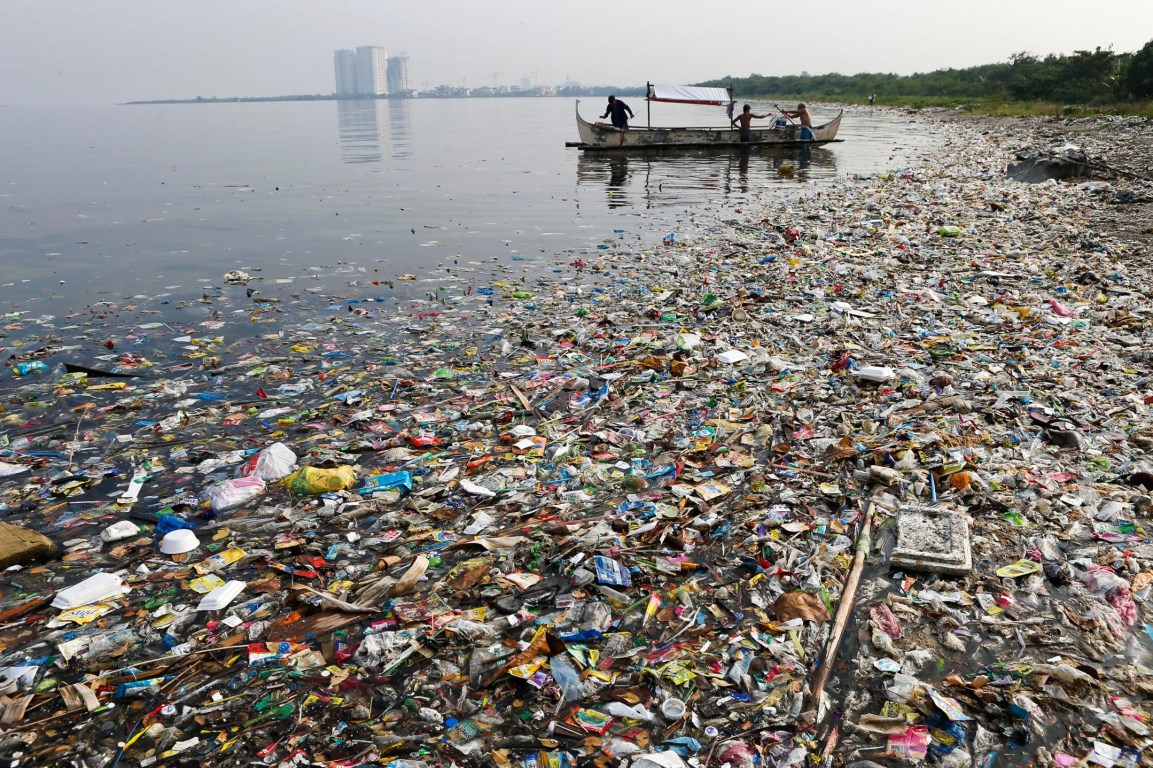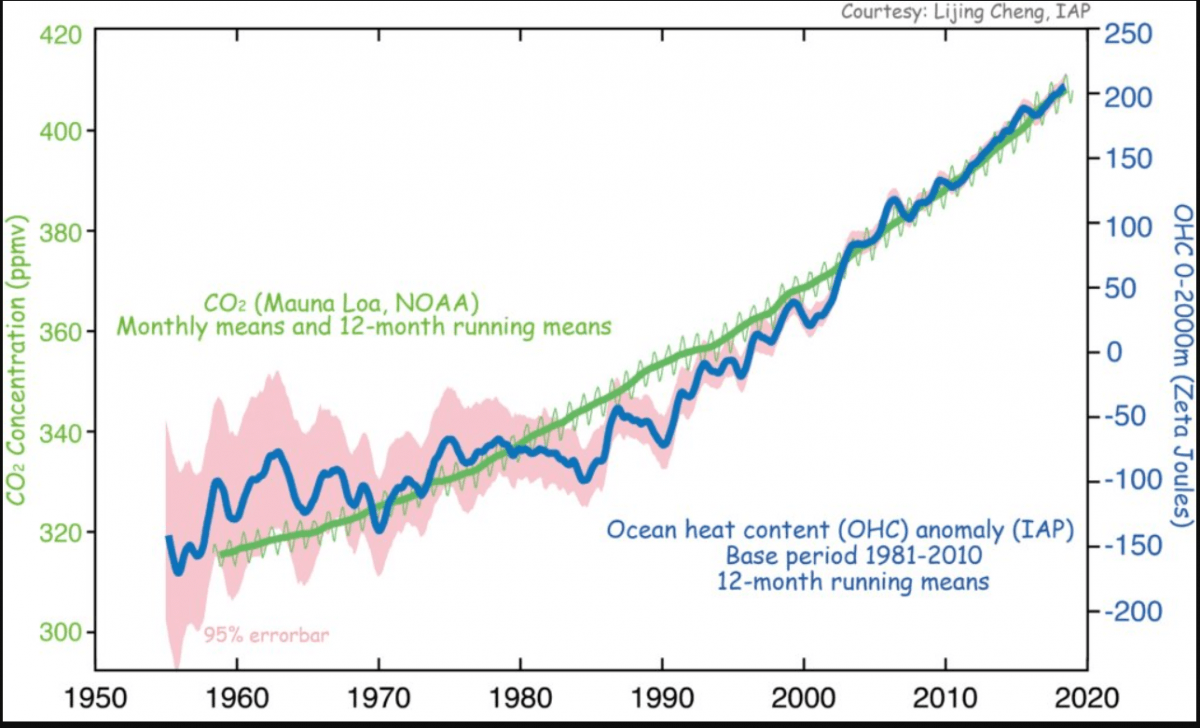World’s Oceans are warming up
January 12, 2019 | Expert Insights

Scientists have projected that the world’s oceans are heating up faster than estimated. The ocean temperatures have set up a new record in 2018 and are damaging marine life.
Background
The world’s oceans cover nearly 70 per cent of the planet and are home to most of life on earth. The ocean nurtures both the microscopic algae and the largest animal on this planet, the blue whale. Oceans govern the weather, feeds many living organisms and also provides a living for millions. However, the significant rise in pollution in the world today has also reached the world’s oceans.
Marine pollution occurs when harmful effects result from chemicals, particles, industrial, agricultural, and residential waste, noise, or the spread of invasive organisms enter into the ocean. Eighty per cent of marine pollution comes from land. Air pollution is also a significant contributor as it carries pesticides or dirt into the ocean. There are different types of marine pollution such as Ocean acidification, Trash in Ocean, Noise in Ocean, Offshore Drilling, Eutrophication and other Toxins.
Aquatic life can be threatened through entanglement, suffocation, and ingestion. Many animals that live on or in the sea consume flotsam by mistake, as it often looks similar to their natural prey. Plastic debris, when bulky or tangled, is difficult to pass through and out of their bodies, and may become permanently lodged in the digestive tracts of these animals. Plastics accumulate because they don't biodegrade in the way many other substances do. The mass of plastic in the oceans may be as high as 100,000,000 tonnes.

Analysis
Scientists have recorded that the world’s oceans are heating up faster than they had estimated. In addition, they said 2018 witnessed the highest recorded temperature. These scientists had adopted new measurements along with the 3900 floats that were deployed since 2000. In the end, they concluded that the oceans have indeed warmed up. Data showed more warming up since 1971 than the latest UN assessment of climate change in 2013.
These findings were published in the US journal Science, led by the Chinese Academy of Sciences. The authors wrote that "Global warming is here, and has major consequences already. There is no doubt, none!"
One of the co-authors Zeke Hausfather, a graduate student in the Energy and Resources Group at the University of California, Berkeley said: "Ocean heating is a very important indicator of climate change, and we have robust evidence that it is warming more rapidly than we thought.” They also said that about 93 per cent of excess heat that is trapped around the Earth due to greenhouse gases accumulates in the world's oceans.
Though the UN assessment gave an estimate of slower rates of increase, they did not provide a single number. But, the lead author Lijing Cheng, of the Institute of Atmospheric Physics at the Chinese Academy of Sciences told Reuters that temperatures in the ocean, in locations that are 2,000 metres below have risen by about 0.1C from 1971-2010. A separate study by the EU’s Copernicus Climate Change Service revealed that 2018 has been recorded as the fourth warmest year for global surface temperatures since the beginning of the 19th century.
Almost 200 nations plan to phase out fossil fuels this century under the 2015 Paris climate agreement to limit warming. Despite the global community agreeing to the framework, three countries in 2017 announced their withdrawal from the Paris climate accord. They were the USA, Syria and Nicaragua.
U.S. President Donald Trump's withdrawal from the Paris Climate Accord was met mainly with disapproval by many countries as the US alone consumes 25 per cent of the worlds energy requirements and is the second largest emitter of Co2.
Counterpoint
Deep ocean temperatures, however, are not easily influenced by the fluctuating temperatures. It would take more than 1000 years for ocean temperatures at profound depth to adjust according to temperatures at the surface.
Another co-author of the study, Kevin Trenberth, of the U.S. National Centre for Atmospheric Research said: “The deep ocean reflects the climate of the deep and uncertain past.”
Assessment
Our assessment is that swift and immediate actions must be taken to tackle the problem of marine pollution as oceans cannot be considered as a dump site. We feel that even if the ecosystems in the oceans are not entirely destroyed, there are clear signs of imminent danger.








Comments